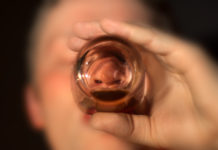A clinical research conducted by scientists from the University Of Rhode Island College Of Pharmacy in Kingston, R.I. is showing signs that a promising alcohol abuse treatment method may soon be available.
The research has been supported by a $1.65 million grant provided by a branch of the National Institutes of Health, the National Center for Advancing Translational Sciences, specifically to generate preliminary evidence about the effectiveness of a new alcohol abuse therapy.
The scientists are currently using the clinical trial, dubbed ‘A Novel Compound for Alcoholism Treatment: A Translational Strategy’, to test the potential of a medication originally developed by the pharmaceutical company Pfizer to treat patients with conditions such as obesity and diabetes.
In addition to aiming to find how effective the medication is if included in alcohol abuse treatment programs, the scientists are looking to assess how safe the medication is when used by individuals with alcohol use disorders.
The medicine used in the study is intended to target ghrelin, which is popularly known as the ‘hunger hormone’ because it is responsible for stimulating a person’s appetite, food cravings and consumption. The scientists are hoping to find out if a medication that blocks people’s ghrelin levels can be effective in assisting people who have been diagnosed with alcohol use disorders.
One of the first phases of the study, in which the scientists tested the medication that acts as a ghrelin blocker in rats, has revealed successful outcomes.
Other previously conducted clinical studies have focused on the link between hormones and alcohol use disorders. According to the leading researcher that is due to the fact that all types of addiction affect pathways in the human brain that are fairly similar. Consequently, if the drug is able to block food cravings it may be able to also block alcohol cravings for people in alcohol abuse treatment.
Another phase of the study — published last month in the medical journal Molecular Psychiatry — included a total of 12 participants who had volunteered. The tests with the volunteers who had consumed the substance showed that the medicine was safe and able to statistically lower the cravings related to alcohol.
Now, the scientists are working on another stage of the clinical trial, the inpatient phase, which will include a larger cohort of ideally 55 people, aged 18 to 65, who may be administered a placebo two times a day or the substance to block their ghrelin levels.
Participants cannot have other serious medical conditions besides alcohol use disorders and will go through several clinical examinations.
The inpatient phase will include counseling as well as follow up monitoring sessions lasting eight hours that may be recorded.
The researchers have emphasized that they are not looking at the study as an attempt to find a cure for alcoholism but a therapy to be included in alcohol abuse treatment.
The team has stated that they are hoping to learn more about alcohol use disorders in general and about the treatment of alcoholism. The clinical trial started in March 2016 and the estimated date for the full completion is December 31, 2019.

















